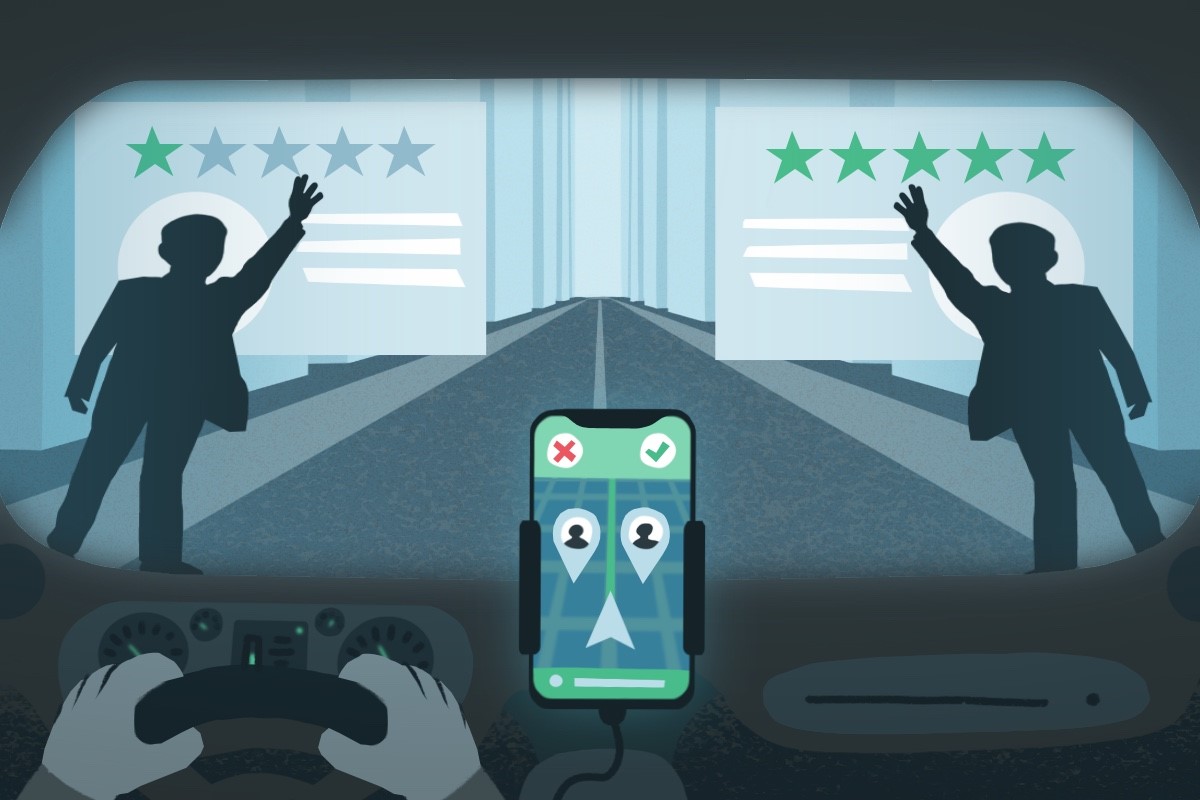In some on-demand services, reviews go both ways. Take a ride-hailing platform: Users can rate drivers who provide an unsatisfactory service with less than five stars, and drivers can also give a lower rating to users who showed up late at the meeting point.
“User ratings of goods and services have been fundamental to the functioning of e-commerce,” said Professor Saša Pekeč of Duke University’s Fuqua School of Business.“ But in platform settings, there is also an economic reason for service providers rating users.”
Ride-sharing platforms create value by matching service providers with users. Their business model is based on coordinating supply and demand, and consequently maximizing the utilization of the drivers by reducing their idle time, Pekeč said.
“Their superior matching capability increases the use of the service providers, which allows the platform to drop the price of the service,” he said.
In the context of ride-hailing, showing up late generates losses for drivers by increasing idle time, he said.
“Drivers don’t like riders who don’t show up on time or are waiting at the wrong spot,” Pekeč said. “If they need to go around the block to find you, that’s lost money for them.”
In the paper, Courteous or Crude? Managing User Conduct to Improve On-Demand Service Platform Performance, published in the journal Management Science, Pekeč and his colleagues Yunke Mai of University of Kentucky and Bin Hu of University of Texas at Dallas, outline a model showing how platforms can improve their performance by prioritizing the matching of the service providers with highly-rated users.
“The platform allows drivers to accept only high-value rides,” he said. “If you are a low-rated rider, the platform will show you a ride if there is an available driver. But if there are users around you who have better ratings, it might first serve them.”
Making on-demand services more efficient
In any economic model, companies can optimize their performance through price and wage setting, to coordinate supply and demand and maximize the surplus. But on-demand services cannot manipulate the prices so that lower-rated users pay more.
“That would be price discrimination, which could be illegal,” Pekeč said, “The platform cannot set a different price for exactly the same service offered to two different users.” Similarly problematic would be to offer different wages to different drivers who provide exactly the same service, he said.
But the researchers found that, platforms can still optimize their performance by implementing a priority-matching model, that is by prioritizing the high-rated users. When at any given time and location, the app receives requests for rides, the priority matching will first fulfill the requests from the highest-rated users, Pekeč explained. Only after having served all the highly-rated users who are demanding service in a certain area, will they start serving lower-rated users.
“Their hands may be tied when it comes to price discrimination,” Pekeč said. “But by prioritizing the best users, they maximize the efficiency of the system.”
He said even a small amount of prioritization will increase the platform performance, in the long run.
“It’s a sort of an evolutionary dynamic,” he said. “Bad users see their ratings, and start noticing that they have to wait a little longer to get a ride. And slowly, they think, ‘I might have to change my behavior.’”
A potentially valuable system for other on-demand services
Pekeč said the priority-matching model based on ratings is optimal for all services where user quality affects the performance of the system.
But even non-platform services could improve their performance and incentivize customer conduct through prioritization.
“Airlines do this all the time,” he said. “They value customers based on their annual spending, assigning status that comes with priority in customer support, seat assignment, upgrades, boarding—this in turn incentivizes these customers to stay loyal to the airline.”
Ratings in on-demand service platforms give the service providers—the drivers, the house hosts, the delivery couriers—more information upon which they can choose whether to take the job or not, Pekeč said. He noted that means workers can trust the platform will connect them first with highly-rated users, cutting down the number of rejected service requests.
“So with better coordination of the resources and of the market, utilization is much higher,” Pekeč said. “And if utilization is higher, the platform can charge a lower price for everyone while at the same time letting service providers earn higher wages. That's the value that the priority-matching unlocks.”
